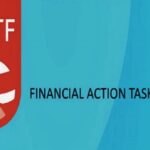ISLAMABAD: Dr. Abdul Hafeez Shaikh, Adviser to Prime Minister on Finance, Revenue and Economic Affairs on Monday chaired a meeting to review progress on Financial Action Task Force (FATF) Action Plan.
The Secretary Finance updated all the key stakeholders on the critical nature of the meeting, serious challenges at hand and top priority that is being assigned by the government.
The chair was updated by all the key stakeholders regarding progress made by Pakistan on FATF Action Plan.
The stakeholders demonstrated coordination and commitment to achieve this national objective.
The finance adviser advised all stakeholders to work round the clock and give highest priority, efforts as well as extra time for achieving and surpassing to FATF action plan.
The meeting was attended by Secretary Finance, Secretary Interior, Chairman FBR, Chairman SECP, Deputy Governor SBP, Director General FMU, Director General CT Ministry of Foreign Affairs, Director General CT NACTA and representatives of Law enforcement and intelligence agencies.
Earlier in February 2019 meetings of Financial Action Task Force (FATF) took place at OECD, Paris to review the compliance of a number of countries with the international standards on Anti-Money Laundering and Counter Financing of Terrorism (AML-CFT).
Pakistan was earlier placed by FATF in its Ongoing Compliance Document in view of an Action Plan undertaken by it to strengthen its CFT Regime.
The FATF reviewed the progress made by Pakistani authorities concerned with CFT role, based upon an analysis carried out by Asia-Pacific Joint Group.
The FATF noted that Pakistan took several steps to implement the Action Plan including by undertaking Risk Assessment of Terrorism Financing and Cash Smuggling in the country.
The FATF advised Pakistan for continue work on action plan, included:
(1) adequately demonstrating its proper understanding of the TF risks posed by the terrorist groups above, and conducting supervision on a risk-sensitive basis;
(2) demonstrating that remedial actions and sanctions are applied in cases of AML/CFT violations, and that these actions have an effect on AML/CFT compliance by financial institutions;
(3) demonstrating that competent authorities are cooperating and taking action to identify and take enforcement action against illegal money or value transfer services (MVTS);
(4) demonstrating that authorities are identifying cash couriers and enforcing controls on illicit movement of currency and understanding the risk of cash couriers being used for TF;
(5) improving inter-agency coordination including between provincial and federal authorities on combating TF risks;
(6) demonstrating that law enforcement agencies (LEAs) are identifying and investigating the widest range of TF activity and that TF investigations and prosecutions target designated persons and entities, and persons and entities acting on behalf or at the direction of the designated persons or entities;
(7) demonstrating that TF prosecutions result in effective, proportionate and dissuasive sanctions and enhancing the capacity and support for prosecutors and the judiciary; and
(8) demonstrating effective implementation of targeted financial sanctions (supported by a comprehensive legal obligation) against all 1267 and 1373 designated terrorists and those acting for or on their behalf, including preventing the raising and moving of funds, identifying and freezing assets (movable and immovable), and prohibiting access to funds and financial services;
(9) demonstrating enforcement against TFS violations including administrative and criminal penalties and provincial and federal authorities cooperating on enforcement cases;
(10) demonstrating that facilities and services owned or controlled by designated person are deprived of their resources and the usage of the resources.
The FATF urged Pakistan to swiftly complete its action plan, particularly those with timelines of May 2019.
